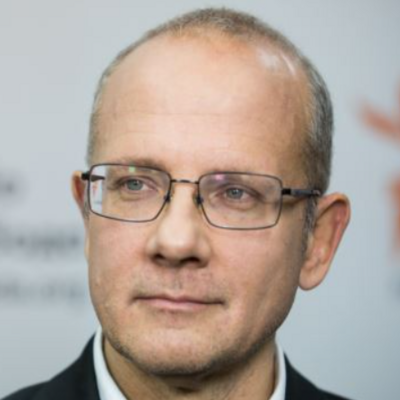Russo-Turkish Confrontation and Future of Putin’s Regime
Repercussions inside Russia of the jet incident on the Syrian border.
December 2, 2015
The fallout from Turkey’s shooting down of a Russian fighter jet will apparently not remain limited to mere rhetorical exchanges between the two countries’ governments.
As the Kremlin is imposing sanctions against Turkish companies and citizens, Moscow and Ankara may end up substantively modifying their policies toward each other.
An ad hoc anti-ISIS coalition that includes both Russia and Turkey might still materialize. However, some larger repercussions of this brief incident in the skies are evolving, highlighting the event’s symbolic and geopolitical significance.
The incident has not only led to considerable cooling in Russian-Turkish relations. It also adds to the foreign challenges Russia’s rulers face.
This could result in deeper problems for the Kremlin than are currently visible. In one way or another, it may affect both the coherence of Putin’s regime and the effectiveness of Moscow’s foreign policy.
The brief military clash on the Syrian-Turkish border seems to have been the first official armed conflict between Russia and a NATO member state. While minor, it is contributing to an ongoing change in both the Moscow elite’s perception and Western public’s understanding of Russia’s position in the world.
Public perception
To be sure, the larger Russian population’s perception of the event will be duly controlled. The Russian government’s spin-doctors will do everything to use Russia’s new foreign frontier in the South to strengthen the already widespread fortress mentality among ordinary Russian citizens.
Yet, the political class, business leaders and educated youth of Russia assess Moscow’s increasing confrontation with the West based on more diverse range of information sources — and thus with a better understanding of international affairs.
Certainly, those among them who are ideologically engaged – i.e., deeply nationalistic and fervently anti-Western – will remain loyal to Putin’s course.
The many pseudo-historians among them may see this latest clash with Ankara merely as a continuation of an 800 years old Russo-Turkish conflict that included a number of bloody wars.
Yet, the sober-minded majority of Russia’s urban upper middle class may view the incident in a more critical manner. They may have already negative feelings about Russia’s military confrontation with the Georgian state, Ukrainian nation and Syrian opposition.
These recent enemies of Russia are, however, geopolitically weak actors towards which the West has sympathies, yet feels committed only to a limited degree.
Turkey’s growing influence
With Turkey, things are different for a number of reasons. There might be no further direct-armed confrontation between the two countries.
However, the recent jet shooting may lead to lasting political estrangement and continued diplomatic bickering between Moscow and Ankara, as well as a stagnation or even reduction of future economic cooperation.
Turkey is a significant regional actor in the Black Sea region with considerable political, economic and military weight.
Ankara has more or less deep ties to most post-Soviet Muslim countries and nations, ranging from the Tatars on Crimea and the Volga to the new Central Asian states and Azerbaijan. These are all countries or regions of high relevance to Moscow.
Ankara is also an important actor within the worldwide Muslim community, as well as a close ally of the EU. So far Turkey has been an important trading and investment partner for Russia, while the two countries’ energy cooperation bears a geo-economic dimension.
In addition, the issue of current and future gas pipelines from Russia to Turkey and via Turkey to the EU touches upon strategic interests of Moscow, Ankara and Brussels.
Last but not least, Turkey is a long-term and large NATO member. Russia’s recent military adventures in Georgia, Ukraine and Syria were adventurous, yet not that risky.
The recent clash with Turkey illustrates more forcefully than earlier international entanglements that the Kremlin is ready to play with fire. The relatively minor clash between Russia and a NATO country increases the stakes of Putin’s foreign confrontations – an impression that may also not escape some educated Russians.
Double decoupling
The discernable estrangement between Russia on the one side and both the Western and Muslim worlds on the other happens against the background of a growing disillusionment in Russia about the prospects of a Moscow-Beijing axis.
China has been praised in the Kremlin’s mass media as a crucial future partner. Yet, during the last few months, it turned out that China’s interest in, and potential for, economic cooperation with Russia will remain limited. The Turkish incident will increase the perception that Russia is becoming isolated.
Finally, the brief armed confrontation – whether it happened in the Turkish or Syrian sky – only adds to the perception that Russia is involved in too many dubious incidents, in too many regions, with too many countries.
Takeaways
The shoot down of the Russian jet could result in deeper problems for the Kremlin than are visible.
The Syrian-Turkish border clash is the first official conflict between Russia and a NATO member state.
Nationalistic Russians may see the clash with Ankara as continuation of an age-old conflict.
Turkey has deep ties to most post-Soviet Muslim countries that are of high relevance to Moscow.
Russia’s military adventures in Georgia, Ukraine and Syria were adventurous but not that risky.
The recent clash with Turkey shows that the Kremlin is ready to play with fire.
